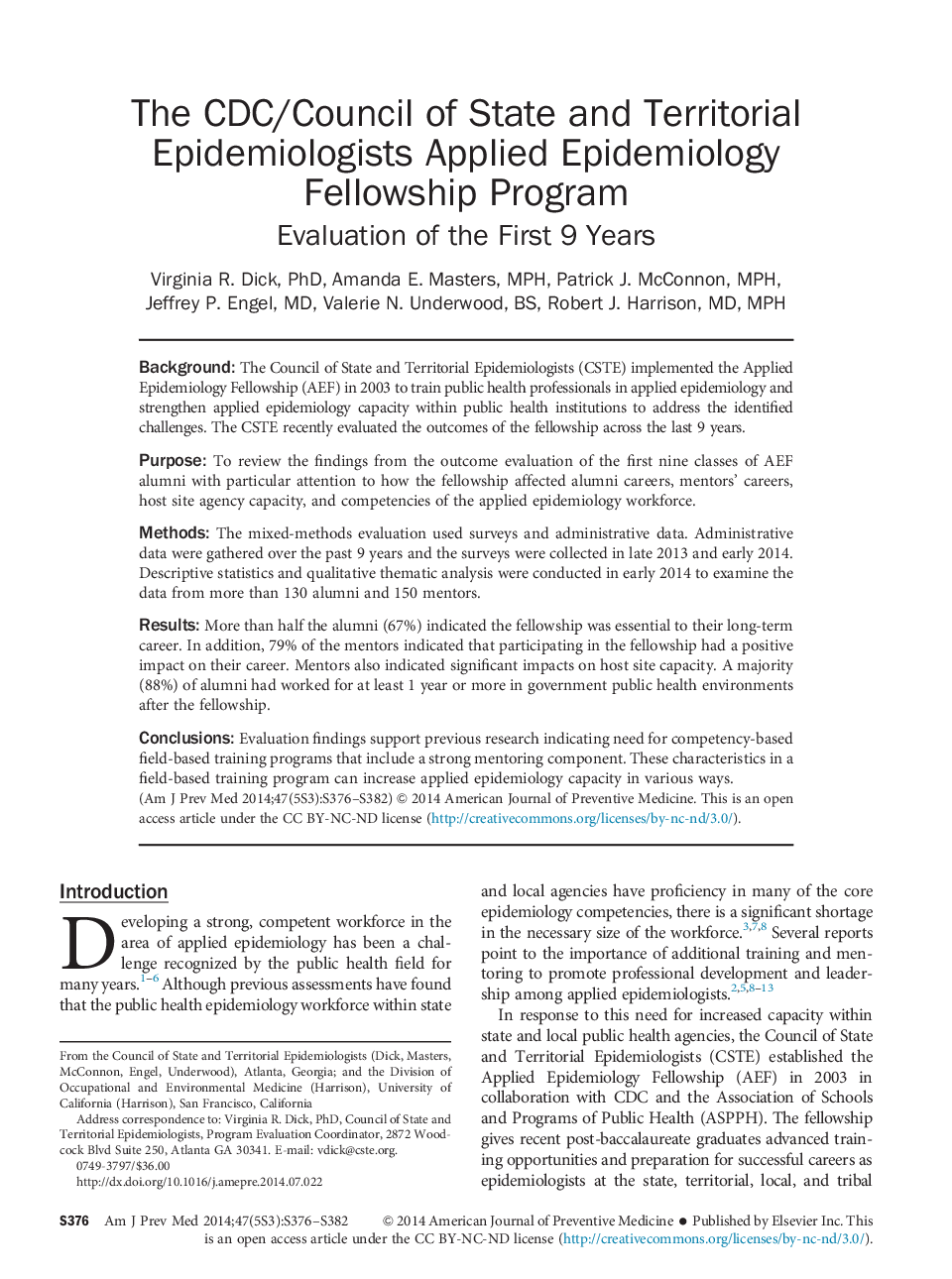| کد مقاله | کد نشریه | سال انتشار | مقاله انگلیسی | نسخه تمام متن |
|---|---|---|---|---|
| 4192376 | 1608649 | 2014 | 7 صفحه PDF | دانلود رایگان |

BackgroundThe Council of State and Territorial Epidemiologists (CSTE) implemented the Applied Epidemiology Fellowship (AEF) in 2003 to train public health professionals in applied epidemiology and strengthen applied epidemiology capacity within public health institutions to address the identified challenges. The CSTE recently evaluated the outcomes of the fellowship across the last 9 years.PurposeTo review the findings from the outcome evaluation of the first nine classes of AEF alumni with particular attention to how the fellowship affected alumni careers, mentors’ careers, host site agency capacity, and competencies of the applied epidemiology workforce.MethodsThe mixed-methods evaluation used surveys and administrative data. Administrative data were gathered over the past 9 years and the surveys were collected in late 2013 and early 2014. Descriptive statistics and qualitative thematic analysis were conducted in early 2014 to examine the data from more than 130 alumni and 150 mentors.ResultsMore than half the alumni (67%) indicated the fellowship was essential to their long-term career. In addition, 79% of the mentors indicated that participating in the fellowship had a positive impact on their career. Mentors also indicated significant impacts on host site capacity. A majority (88%) of alumni had worked for at least 1 year or more in government public health environments after the fellowship.ConclusionsEvaluation findings support previous research indicating need for competency-based field-based training programs that include a strong mentoring component. These characteristics in a field-based training program can increase applied epidemiology capacity in various ways.
Journal: American Journal of Preventive Medicine - Volume 47, Issue 5, Supplement 3, November 2014, Pages S376–S382